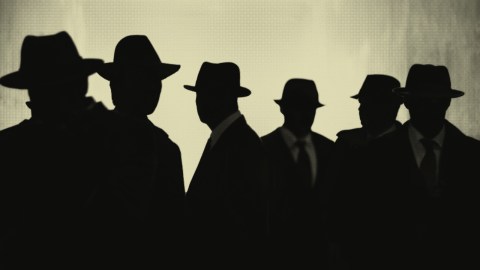Opening the Stasi files: Would you read the secrets your government kept on you?

- In 1991, the German government allowed the public to open the “Stasi files” that the East German secret police had kept on them.
- It’s estimated that less than half of those who thought they had files applied to see them. The majority didn’t want to know.
- One of the biggest reasons given for not finding out was that people were worried that their present-day relationships would be damaged if they learned that others close to them were informants.
In the Hitchhiker’s Guide to the Galaxy, the Belcerebon people of the planet Kakrafoon were highly irritating. They grated on everyone so much that they were condemned to the worst punishment known to the Galactic Tribunal: telepathy. The Belcerebon people suddenly had all of their thoughts broadcast for everyone to hear. There were to be no secrets, no social politeness, and no biting your tongue. Every thought — mean, lewd, and weird — was exposed for everyone to hear. As a result, the Belcerebon resolved to talk very loudly, so loudly as to drown out the thoughts of everyone else.
As Douglas Adams knew well, there is such a thing as too much knowledge. For a long time, philosophers, scientists, and academics have assumed that knowledge is an absolute good; the more knowledge you have, the better. Yet there is an increasing focus on the concept of “deliberate ignorance” — that is, weighing up the costs and benefits of knowing a certain thing, and then deciding not to learn about it. For instance, with the great boom in genetic health testing, some people willingly choose not to know if they are predisposed to some horrible medical condition. I don’t want to know if I’m at risk of brain cancer.
An interesting area of “deliberate ignorance” concerns once-secret government data on individuals. Would you want to know what spies and surveillance teams have found out about you? Are you curious as to what it would say? As it happens, there’s a research paper about just that.
Opening the Stasi files
In the decades after World War II, East Germany was a fearful place of suspicion, surveillance, and spies. The Communist state’s secret police, the Stasi, wiretapped, bugged, and tracked citizens on an enormous scale. By the time the Berlin Wall came down in 1989, the Stasi had over 90,000 employees and 200,000 informants (that we can estimate). While the Stasi disappeared — reabsorbed into a healing, reunited nation — the millions of pages of information they had collected on people did not.
In 1991, the reunified German government passed a bill that allowed people to access and view the Stasi files that were kept on them. What do you think people did? What would you do? A lot of people wanted to know. By 2020, 2.17 million people had applied to see their files. But, that’s not as many as you might have thought. Given that an estimated 5.25 million people in Germany believe they have a file to see, that means that more than half chose not to see their Stasi files. So, why didn’t all those people want to know?
The study revealed that the vast majority of people simply thought the information on them wasn’t relevant. The fact that they read “capitalistic literature” or fraternized with certain unsavory characters simply didn’t matter anymore in 1990s Germany. What’s more interesting, though, is the next largest reason: People didn’t want to know if their friends, family, or colleagues were informants.
Trust issues
The Stasi files research reveals that people did not want to ruin the relationships they had in their present lives. Imagine, for instance, that you opened a file and found information that only your spouse or a very close family member could have divulged. It would ruin that relationship forever. If you discovered that your best friend’s name appeared at the top of an “informants” document, how would that change your friendship? For a society that had been shrouded in suspicion and mistrust for so long, the opening up of personal Stasi files served only to erode that trust further.
What this also teaches us is just how far people are willing to forgive, or at least forget, the wrongdoings of those “on the other side.” It’s something that a lot of us do not think about in the 21st century. When Nazi Germany fell to the Allies, the thousands of bureaucrats of the Nazi machine simply found new work in the new country. Few to no questions were asked. Thousands of informants, party members, enablers, and soldiers were reabsorbed into a healing society (although, the most notorious were either arrested or subjected to “denazification”). The same story was told in Vichy France, as well as all Nazi-occupied countries across Europe. It’s a story being told even today where you find sudden, bloody regime change such as in Afghanistan or after the Arab Spring.
For a country to heal, perhaps there is a necessary element of “deliberate ignorance” — a no-questions-asked policy. It’s something mirrored, on a smaller scale, in the wake of elections in democracies. Invariably, the winning incumbent’s speech will be one of reconciliation, renewal, and getting on with the job. It was a hard, vitriolic battle, but let’s move on now. The case of the Stasi files reveals how much this is ingrained in our collective ability and desire to forget.
Jonny Thomson teaches philosophy in Oxford. He runs a popular account called Mini Philosophy and his first book is Mini Philosophy: A Small Book of Big Ideas.





